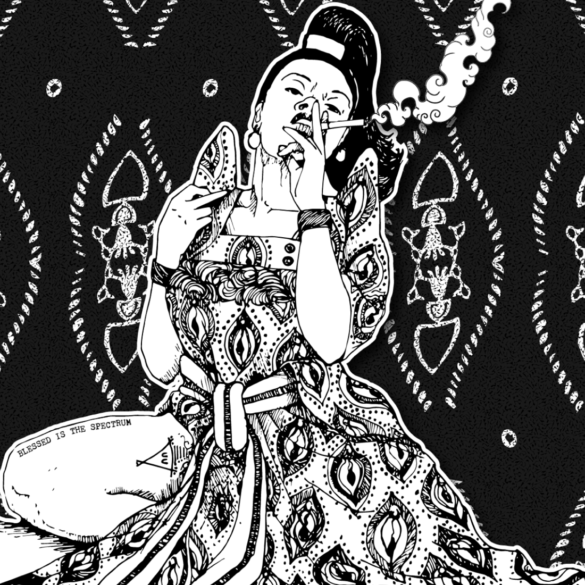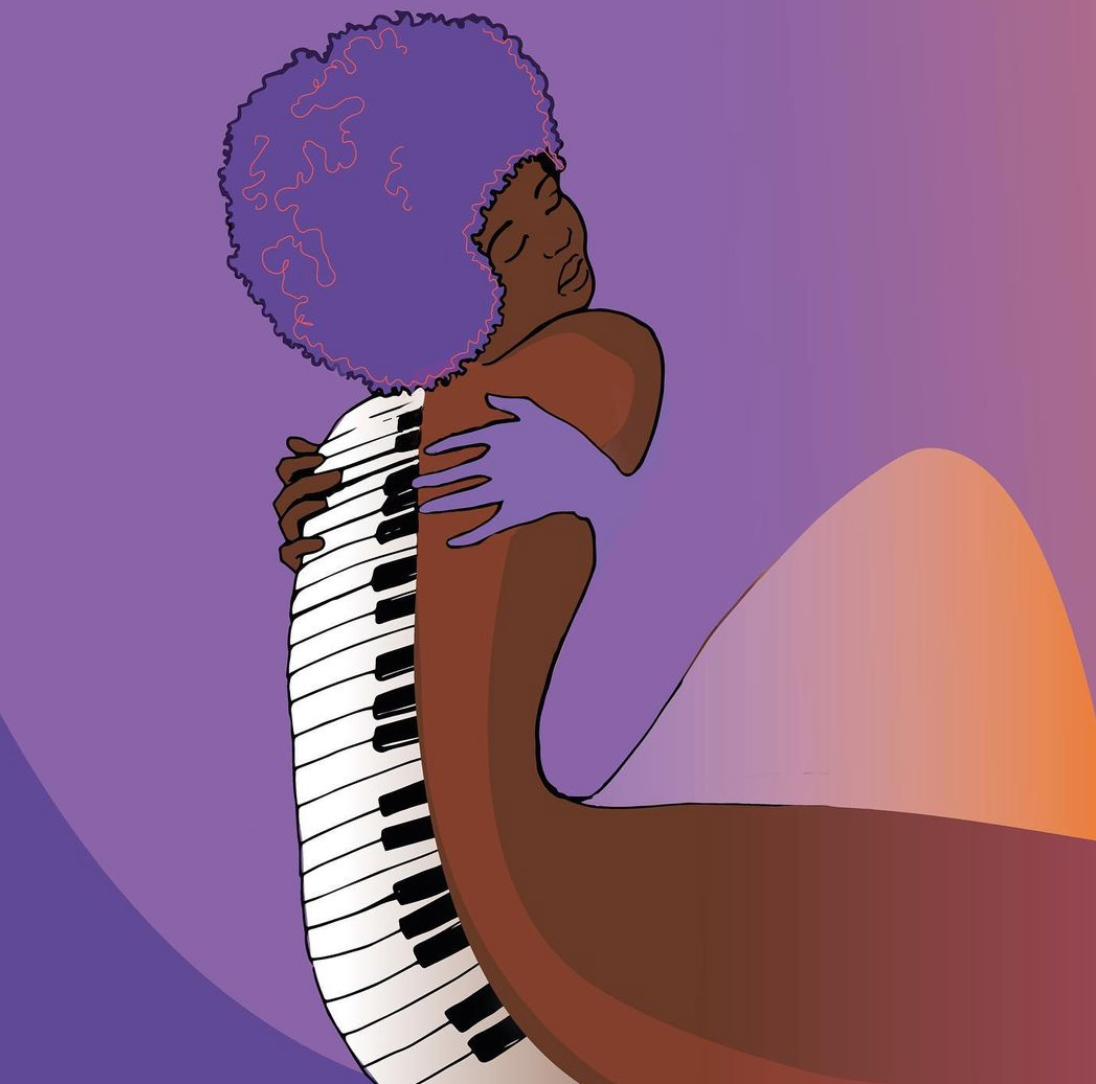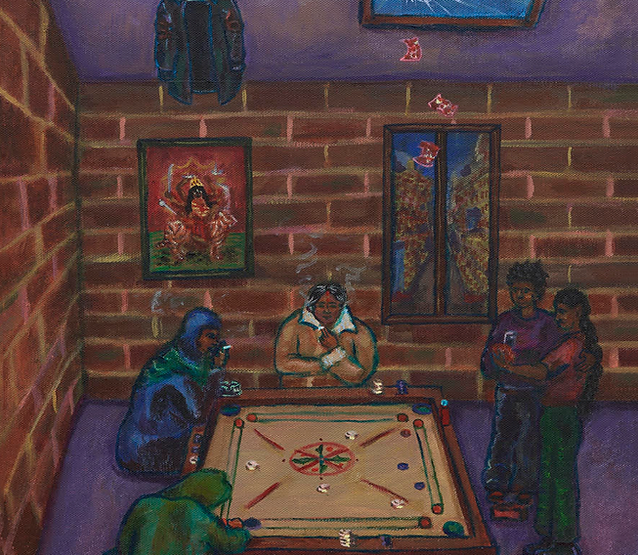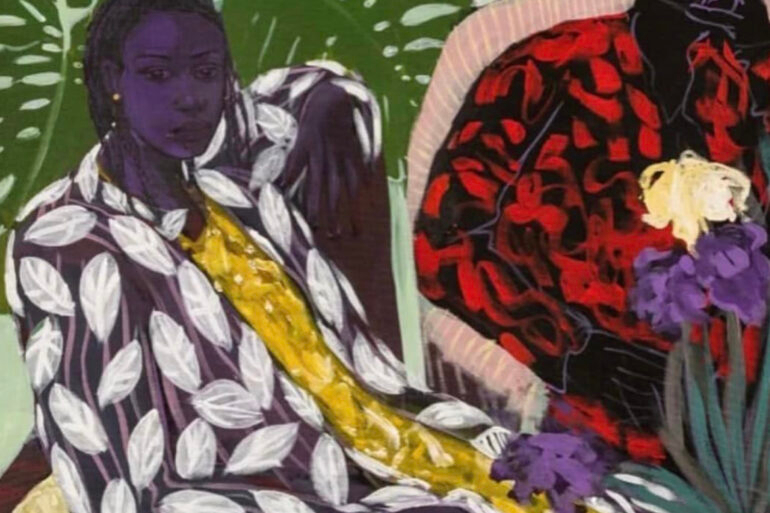Charity Atukunda is a Ugandan artist whose work explores themes of feminism, identity and mental health.
How has your lived experience shaped your practice?
I was born in Rukungiri in 1988, a remote district in Western Uganda, the third child of four children. My Late father was an Anglican Reverend who spent much of our childhood studying and working in the United States. In 1996 we joined him in America and my formative years were immersed in a strikingly different culture. They were spent seeking out my place as an artist, drawing on visual fine arts, graphic novels and animations for inspiration. In America the questions and politics of identity were at the forefront of my experiences and forced me for the first time to question what identity truly was and what it meant. Eventually my family returned and settled back in Uganda in 2008. The transition was an unexpected dose of decolonizing, self-deconstruction and an uncomfortable vulnerability that forces me to constantly search myself. The process of this unlearning impacted my career as a visual artist and my world-view immensely.
What are some of your biggest influences and motivations in your work? What issues are you passionate about working on?
I have numerous, diverse influences from writers, to film makers, musicians, video essayists, to activists, family and close friends. One thing I think they all have in common is they have left an impression on me by engaging with them personally or their work, they have shown me something new, especially the way I view the world, my work and life in general, they inspire me with new knowledge, perspective and to live life unapologetically. As an artist I am drawn to topics that often explore and question the ideas, beliefs and systems that govern our lives. Reoccurring themes in my work tend to explore and question identity as a woman, a Ugandan, an African, mental health, social political issues both locally and globally.
How does a focus on health/mental health feed into your work?
The way I understand it, a focus on my mental health is to always be aware of the complexities of my internal world and how I view and experience the external world and in turn how the external world affects me. This affects my work because I don’t create it only for myself. Asking questions, researching, engaging different points of views is the best way to learn, in my experience. When approaching my creative work I do a lot of research because I understand the power of images and how they can captivate people. It’s important that they are rooted in truth, as much as possible. Mental health calls us to understand ourselves and in understanding myself I feel like I create more meaningful work.
Where are you based and what excites you about the creative community around you?
I am currently based in Kampala, Uganda. Uganda is a country that is 60 years old since colonial occupation by the British, my generation is in the process of inheriting a myriad of complex issues, especially as the quality of life has changed dramatically compared to our parents and grand-parents. Some of the issues that the creatives of Uganda are calling attention to and exploring within their work are about their identity as a nation, the impacts of colonisation and the process of decolonisation, democracy and liberty under an oppressive government, the changes in a conservative, religious culture as women are becoming more financially and socially independent, the rise of technology and the access it. I am excited to see them go about talking about all of these things and I am also excited that the number of women succeeding and joining the field continues to increase even though it is still heavily male dominated.
See more of Charity’s work on instagram


















